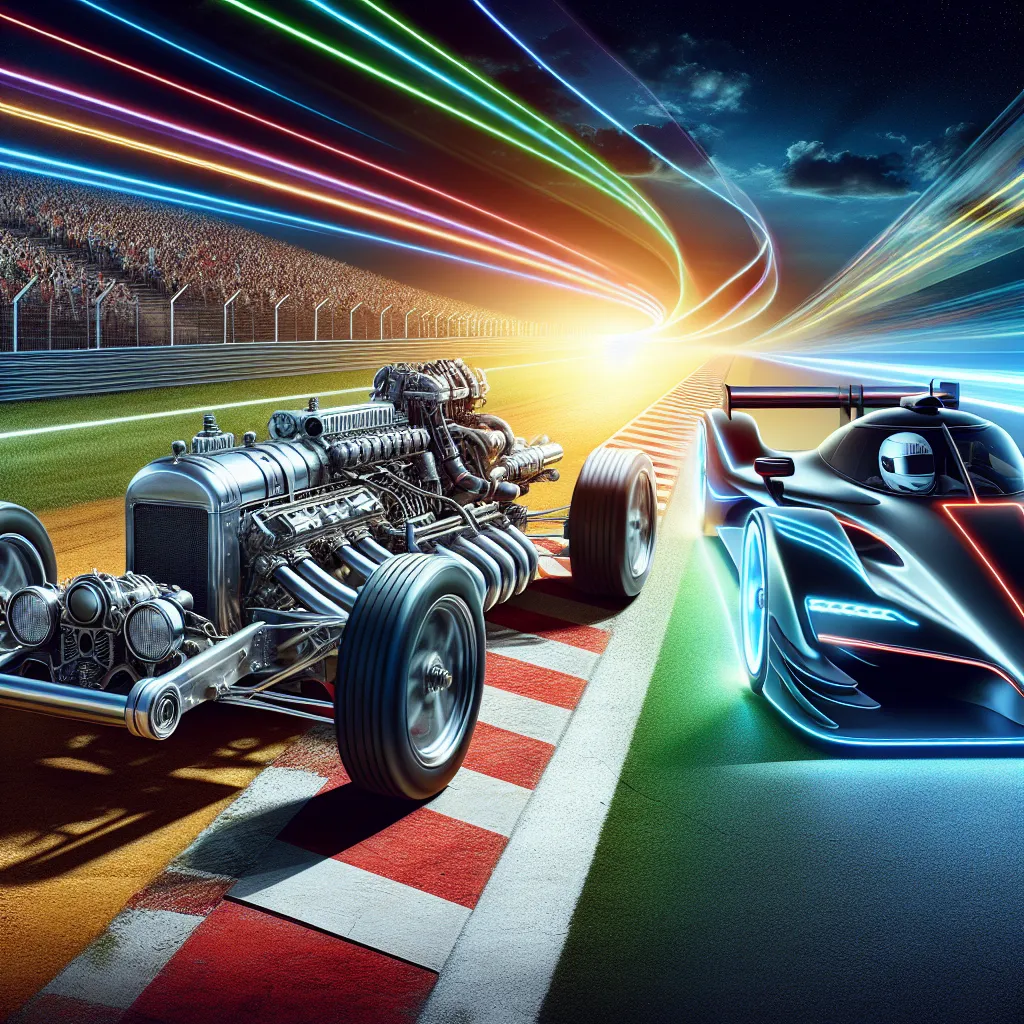The History of Racing: From Carriages to Supercars
Racing technology has come a long way since the days of horse-drawn carriages and steam-powered vehicles. The history of racing can be traced back to the 19th century when horse-drawn carriages were the primary mode of transportation. As the industrial revolution took hold, the development of combustion engines revolutionized transportation and racing. The first car races took place in the late 19th and early 20th centuries, marking the beginning of the automotive racing era.
From those early races, the technology and engineering behind racing cars have evolved exponentially. The mid-20th century saw the emergence of supercars, such as the iconic Ferrari, Porsche, and Lamborghini, which pushed the boundaries of speed and performance. These advancements in racing technology paved the way for modern racing supercars that are built for unparalleled speed and precision.
Today, racing technology has entered a new era with the rise of electric power. Electric racing cars, with their instant torque and sustainable power sources, are redefining the possibilities of speed and efficiency on the racetrack. The evolution of racing technology from carriages to supercars and now electric power demonstrates the continuous drive for innovation and progress in the racing industry.
Revolutionizing Racing: The Advent of Hybrid Engines
One of the most significant advancements in the evolution of racing technology has been the introduction of hybrid engines, revolutionizing the way racing cars are powered. The integration of hybrid technology in racing vehicles has marked a monumental shift from traditional internal combustion engines to a more sustainable and efficient power source. This transition has not only enhanced the performance of racing cars but has also significantly contributed to reducing their environmental impact.
Hybrid engines combine the power of conventional fuel engines with electric motors, providing a seamless blend of high-performance capabilities and improved fuel efficiency. This innovative approach has not only redefined the dynamics of racing but has also set new benchmarks for sustainability in the automotive industry. The deployment of regenerative braking systems and energy recovery systems has further amplified the efficiency of hybrid racing cars, allowing them to harness and utilize energy that would have otherwise been wasted.
Moreover, the adoption of hybrid technology in racing has paved the way for advancements in electric powertrains, ultimately driving the development of fully electric racing cars. The competitive landscape of racing has been transformed as manufacturers and racing teams strive to optimize the potential of hybrid and electric technologies, pushing the boundaries of performance and sustainability.
As the automotive industry continues to embrace the era of hybrid and electric racing, the future holds exciting prospects for further innovation and the continued evolution of racing technology.
Electrifying the Track: The Rise of Electric Racing
As the world of racing continues to evolve, one of the most significant advancements in recent years has been the rise of electric racing. This shift towards electric power has not only revolutionized the racing industry but has also paved the way for a new era of sustainable and environmentally-friendly motorsports.
Electric racing has gained significant momentum in recent years, with major racing series such as Formula E capturing the attention of motorsport enthusiasts around the world. The appeal of electric racing lies not only in its environmental benefits but also in the technological advancements it brings to the track.
With electric racing, the focus has shifted from sheer horsepower to the efficiency and performance of electric motors and batteries. This has led to the development of cutting-edge technologies aimed at maximizing the power output and range of electric race cars, pushing the boundaries of what was once thought possible in racing.
Furthermore, the electrification of the track has opened doors for innovative designs and aerodynamics, as engineers seek to optimize the performance of electric race cars. The integration of regenerative braking systems and advanced energy management solutions has further enhanced the appeal of electric racing, making it a hotbed for technological innovation.
As electric racing continues to gain traction, it is evident that the future of motorsports is headed towards a more sustainable and electrifying direction. With ongoing advancements in electric vehicle technology and the growing support for eco-friendly initiatives, the rise of electric racing is set to play a pivotal role in shaping the future of racing technology.

